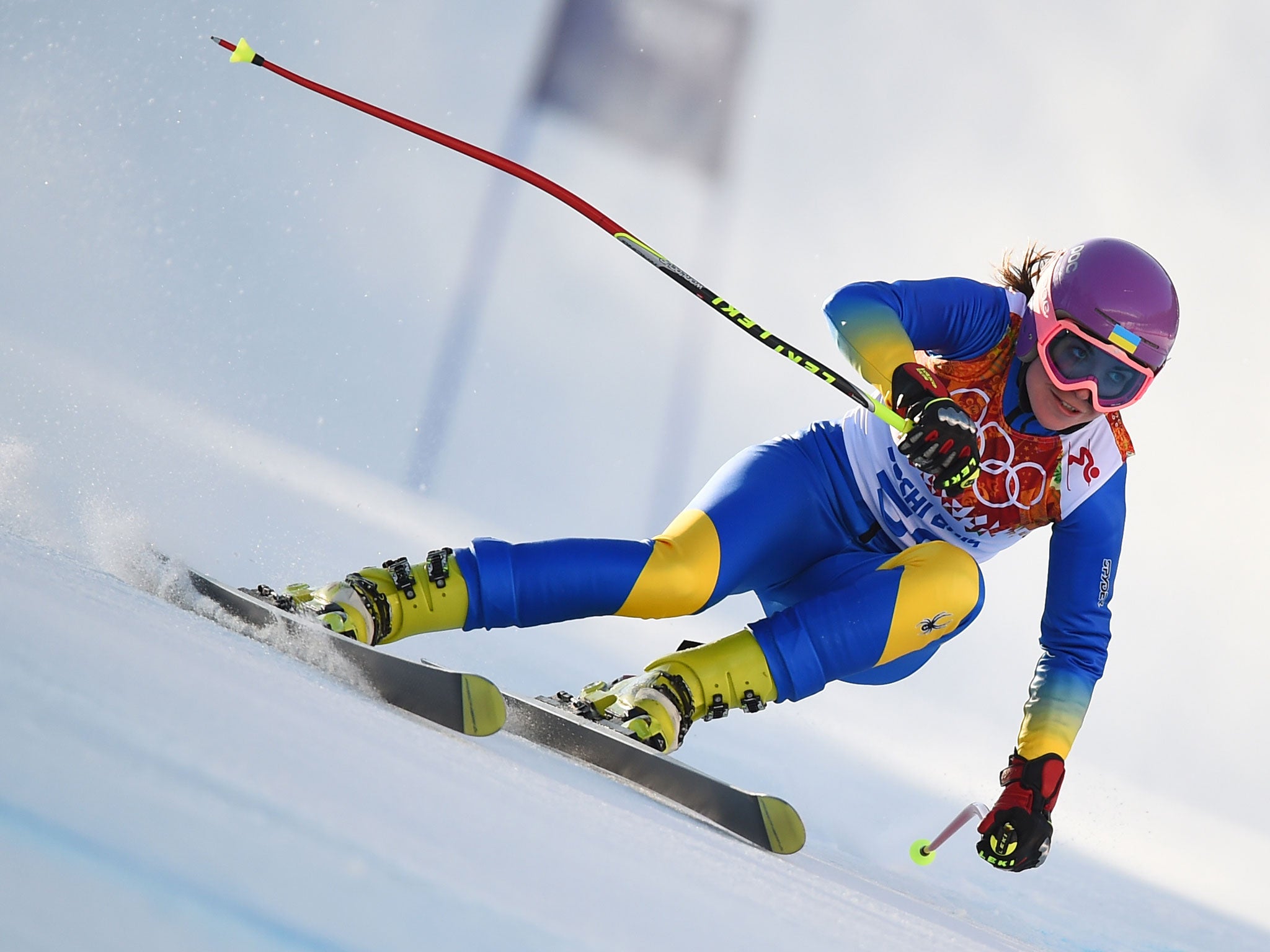Winter Olympics 2014: Ukrainian skier Bogdana Matsotska withdraws from slalom in protest against ongoing violence in Kiev
Matsotska revealed that the IOC have stopped athletes from wearing black armbands, something they deny, in support of the protesters in Ukraine's capital

Your support helps us to tell the story
From reproductive rights to climate change to Big Tech, The Independent is on the ground when the story is developing. Whether it's investigating the financials of Elon Musk's pro-Trump PAC or producing our latest documentary, 'The A Word', which shines a light on the American women fighting for reproductive rights, we know how important it is to parse out the facts from the messaging.
At such a critical moment in US history, we need reporters on the ground. Your donation allows us to keep sending journalists to speak to both sides of the story.
The Independent is trusted by Americans across the entire political spectrum. And unlike many other quality news outlets, we choose not to lock Americans out of our reporting and analysis with paywalls. We believe quality journalism should be available to everyone, paid for by those who can afford it.
Your support makes all the difference.Ukrainian skier Bogdana Matsotska has announced that she has withdrawn from the Winter Olympics in Sochi in order to protest against the violence in her home country after the International Olympic Committee banned athletes from wearing a black armband ion tribute.
The 24-year-old, who has already finished 27th in the women’s super-G and 43rd in the giant slalom, was expected to compete in Friday’s slalom competition, but Matsotska has confirmed that she will not compete due to the IOC’s ruling following the violent and tragic clashes in Kiev.
“We wanted to wear black armbands to mourn the people who have died in Kiev, but the IOC told us it was not allowed,” Bogdana Matsotska said. “In these conditions it is simply not possible to compete. We don't feel comfortable here and we can't compete.”
The skier remains in Sochi along with her father and coach, Oleg Matsotskiy, who confirmed that they have been asked not to leave by the head of the Ukraine’s Olympic delegation Sergei Bubka.
Matsotska has also revealed that she has considered competing in order to shout “glory to Ukraine” when she crosses the finish line, echoing the slogan used by current protesters in the Ukrainian capital, but believes that the best course of action this time is to not compete at all.
“We respect Bubka and we respect the team, of course,” said Oleg. “We don't want to cause agitation. But we don't want to compete in the name of this government.”
Matsotska’s decision comes after a week of bloodshed that saw the death toll rise to 77 in one of the darkest seven-day periods in the country’s history. However, protesters claim that the figure is beyond 100, contrary to the Ukrainian health ministry’s figure.
The clashes are a culmination of three months’ worth of protesting against President Viktor Yanukovich’s regime, although a peace deal could be reached with the opposition party with talks having been brokered by the European Union.
“We are trying any way we can to get home, but we can't get tickets at the moment,” Matsotska added, with her wish to return to the protestors Maidan base camp in Independence Square. “When we get back I want to go straight to Maidan. I just want to help the protest; if not with my presence then I will find another way.”
The IOC have denied issuing a ban on black armbands but did confirm that talks had taken place over what the Ukrainian team could do to show their support.
“My understanding is they had a discussion about what would be the most appropriate and best sort of thing to do. They decided to do other things,” said IOC spokesman Mark Adams.
When questioned about whether the IOC did specifically ban the wearing of armbands, he said: “I don't think it got to that stage. It wasn't on the table. They discussed what they wanted to do and they decided that it would be a minute's silence, the team to be together, and so on.”
Adams also explained why the IOC are keen to prevent any demonstration of political protest or statement, under which they include the wearing of black armbands.
“There are 2,800 athletes here,” continued Adams. “As you can imagine, there are a lot, sadly, a lot of people with personal tragedy in their lives. Some with big political tragedies, some with personal tragedies, friends, loved ones, some athletes, some non-athletes. The idea is to try to help them to find other ways, individual or collectively, to mark those moments.”
Join our commenting forum
Join thought-provoking conversations, follow other Independent readers and see their replies
Comments